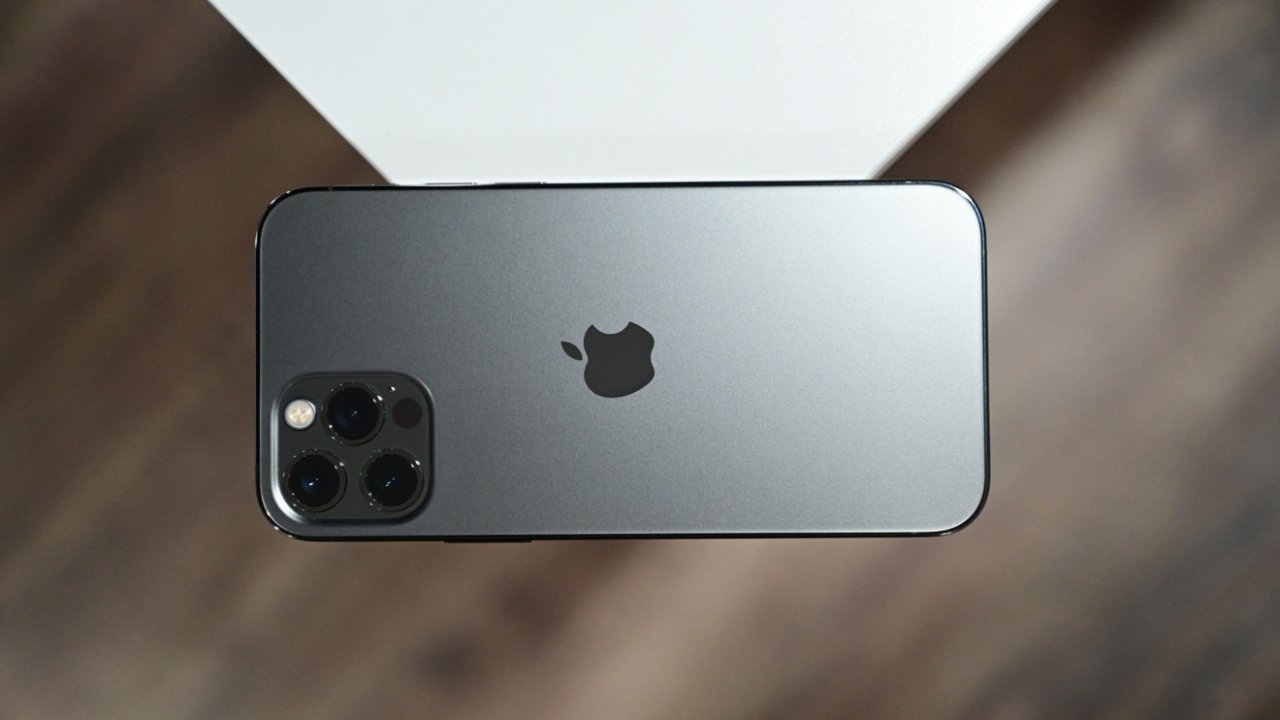France's iPhone 12 modem power testing was radically different than the standard
A support document by Apple details how France's iPhone 12 radio power testing differed greatly from international standards, which will lead to the iOS 17.1 update cutting power to the model's modem.

iPhone 12 on the edge of a recall
About a month after drama flared up about the iPhone 12 exceeding radio frequency legal limits, Apple has published a support documenting the iPhone 12, France's testing, and why the iPhone 12 was found non-compliant. In the document, Apple spells out that the iPhone 12 -- and every iPhone for decades -- detects when it is on a table and not adjacent to a user's head, and will dial up power to the modem to help it connect to more distant cellular towers.
"For more than a decade, iPhones have had an off-body detection feature that allows for slightly higher transmit power when you set the phone down, for example, on a table," Apple says. "This has been thoroughly tested and verified internationally to be an effective mechanism to comply with SAR requirements. The slightly higher power is not applicable to SAR compliance since the phone is on the table, not on your body."
Apple is not the only vendor that does this. Samsung and Google -- and likely every other cell phone manufacturer -- do the same thing, which complies with international regulations, standards, and testing protocols. It's unclear why France's radiation watchdog used a protocol that did not account for the "off-body detection mechanism."
"The specific test protocol used by ANFR requires that devices meet the on-body SAR limits, even when the device is tested off-body on a static surface," Apple wrote. "This decision is not consistent with international standards, which allow for independent testing of power control mechanisms that may not be activated during standard SAR tests."
The document also spells out that the power reduction in iOS 17.1 is only happening to customers in France.
"iPhone 12 will no longer increase the allowed power when the off-body state is detected, such as while it is sitting on a table," says Apple. "As such, in coverage areas where cellular signal is low, this change in antenna transmit power may result in slightly lower cellular performance in certain off-body use cases. The vast majority of users are not expected to notice any impact."
Radio frequency power versus ionizing radiation
RF radiation is not the same as ionizing radiation generated by the decay of radioactive isotopes and from the sun itself -- and the mechanism of damage is different. Ionizing radiation breaks the bonds in cells, where sufficiently high levels of RF radiation can heat tissue and could theoretically cause tissue damage.
While radiation exposure is measured in gray, sieverts, or rem per hour, depending on the country, Specific Absorption Rate (SAR) is more universal. SAR is a measure of the rate at which the body absorbs RF energy. A SAR of 1 watt per kilogram would increase the temperature of an insulated slab of tissue by one degree Celsius per hour of exposure at that wattage and does not account for the loss of that temperature increase from any other factor.
Unlike the trio of ionizing radiation measurement methods, SAR is a measure of that heat and not an absolute measure of damage. Generated heat is what can theoretically cause damage from RF exposure, but the measurement -- and how it is measured and regulated -- is controversial.
Like ionizing radiation, radio frequency broadcasts decrease in power associated with a recipient's distance and shielding from the source. The further away a receiver or body is away from a source, the lower power of the exposure to the source.
So, in the case of an iPhone broadcasting at an equivalent power to France's measured 5.4 W/kg on a table away from a user, means that a body part like a hand even two inches away is getting well less than half that number, and realistically less than a quarter. All of these exposures are far less than the legal limit, which is a small fraction of the limit that's been established as possibly damage-causing.
Apple's testing conforms to an international industry standard. As Apple says, during testing, iPhone radios are set to the highest transmission possible manually, and SAR is evaluated in real-time, over time intervals as specified by applicable regulations.
Apple says that its SAR testing is evaluated in positions that simulate uses against the head, with no separation, plus when worn or carried against the torso of the body, with 5mm separation. Initially, reports claimed that the testing by France's regulatory agency differed from the rest of the world.
"It is important for all iPhone 12 users in France and around the world to know that iPhone 12 is safe to use and always has been," Apple says.
Read on AppleInsider


Comments
If other manufacturers' phones do the same thing, how did France's testing not find the away-from-head increase. Exactly how was that test performed? If held against a dummy head in testing, there might have been the off-body ramp up.
C'est le vie.
As it pertains to the testing, my best guess on how they did this testing is a phone on a horizontal surface, and the tissue analogue with the sensors placed on top of the phone on the table. The standard testing rig holds the phone vertically, next to the fake tissue.